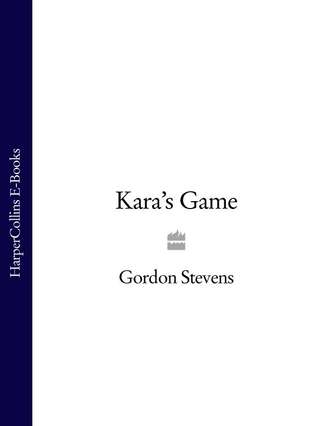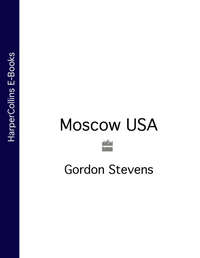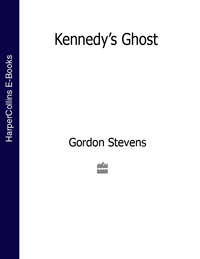
Полная версия
Kara’s Game
‘I’m sorry.’
What do you mean, you’re sorry? The fragile security Kara had built round her collapsed. Against the wall behind her the four men looked at the doctor.
‘Jovan has appendicitis. If it hasn’t burst already it’s about to.’
‘So?’
‘We’re a medical centre, not a hospital; there’s nothing we can do about it here. The nearest place where Jovan could be treated is Tesanj. We do take patients there, but only at night.’ In the hope of catching the snipers and gunners asleep. And on horseback, because there’s no petrol for the cars. ‘A group left with two people eight hours ago.’ She checked her watch. It was three in the morning, going on four. ‘Perhaps we can try tomorrow night.’ If Jovan’s still alive, which is unlikely, but we can only pray. And if there’s somebody to take him, because even at night it’s dangerous.
Not my little Jovan. Kara reached forward and held his hand, stroked his face. Not after all he’s been through.
He was awake now, his eyes looking at her. The men behind her were getting up, Finn taking out a map and asking the doctor the route; Steve wrapping Jovan again and slipping him into Finn’s bergen; Jim giving the doctor one of the food packs and telling her how it worked, telling her to use it herself, because everyone was hungry but she was the one they all relied on.
Kara realized what they were doing. ‘I’m coming with you,’ she told them.
‘You’ll slow us down.’ Finn pulled the bergen on to his back and picked up his Heckler.
‘I’m still coming with you.’
They left the basement, crouched in the doorway for the next shell, then moved into the street, Maglaj cold and bleak and battered round them, green and stark and unreal in the PNGs. They moved quickly, keeping the height of the buildings between them and the incoming shells and mortars. In the hills it will be a frozen hell, she thought, on the road to Tesanj it would be like going to the Arctic Circle.
They cleared the town, climbing now, Steve in front again and Finn following, Kara tucked into the middle. At least she wasn’t hungry, at least the stew had warmed her. The quarter segment of the moon was above them, the trees ghostly round them and the ground phantom-green with snow and ice. Behind them, and to their right, the sounds of the guns and mortars faded in the dark. At least the road to Tesanj was in the Maglaj – Tesanj pocket, she thought, at least they didn’t have to go through the lines. Just pray that the gunners are asleep or happy on slivovic.
They had been going thirty minutes and she was tiring more than she could have imagined. Two kilometres gone, she told herself, perhaps three. Oh God, the night was running out, oh God, they weren’t going to make it in time. She should have listened to them, shouldn’t have insisted she go with them. Her lungs seared every time she breathed and there was no longer any feeling in her feet.
‘You’re slowing us down,’ she was only half-aware what Finn was telling her. ‘Steve and I will go ahead with Jovan, Ken and Jim will stay with you.’
She tried to reply but they had already left, the two of them running, bergens on their backs and guns held in front of them.
‘Doing well,’ Jim told her. ‘Let’s go.’
The cold was killing her. The road was undulating, dropping then climbing, occasionally they slipped off it and hid in the bushes when someone came the other way, just in case they were Chetniks. She was no longer thinking in terms of hours or minutes or seconds, was thinking only if Finn and Steve would make it to Tesanj in time, was thinking only in terms of putting one foot before the other, making herself go on, making herself stop crying with pain and desperation. Soon it would be getting light, soon they would have to stop because soon the Chetniks in the hills would be able to see them. She was on Ken’s shoulders, not even aware how or when it had happened, Jim carrying Ken’s bergen as well as his own, and the two men still moving quickly. Not running, but not walking, something between. One man moving and the other covering him, then the second moving and the first covering him. Guns at the ready, guns across the chest, and the butt in the shoulder position.
In the distance – not too far in the distance – she heard the sounds of the guns pounding Tesanj. Perhaps they had been there all night and she had been unable to hear them because of the pounding in her ears. Jim was carrying her now, the black gone, fading into grey, and the grey soon mixing into the cold sharp light of a winter morning. They took off the PNGs and came out of the trees, dropped into the edge of the town, Finn and Steve suddenly with them – she wasn’t sure where they had come from. Finn lifted her from Jim’s shoulders and ran with her into the cover of the buildings, took her into the basement of the hospital.
‘Where’s Jovan?’ she asked.
‘In the operating theatre.’
They sat on a bench in one of the corridors and waited.
The hospital was grey concrete and multistorey, though because of the shelling the top floors had been cleared. The corridor was dark and gloomy, the hospital running on an emergency generator, so lighting was restricted to key areas. A doctor hesitated by them, then passed on. In the town outside the streets were empty and the shells and mortars rained down on the buildings.
Another doctor stopped. He was old before his time, his shoulders drooped with fatigue and his eyes were haunted.
‘You’re Jovan’s mother?’
‘Yes.’ She stood up, fists clenched in fear.
‘Jovan’s fine, he’s going to be okay. He was lucky. Another half-hour and he wouldn’t have made it.’
‘Thank you.’ It was all she could say. ‘May I see him?’
‘He’s not come round yet, but of course you can.’
He led her along the corridor and into what now served as a ward. The beds were pushed tight together and the room was packed, a limited amount of lighting. She saw Jovan immediately, saw the others. Oh God, she almost wept. The children were wrapped in bandages, some had legs or parts of legs missing, some arms or parts of arms where their limbs had been blown off by shrapnel or snipers’ bullets. Others had their faces and eyes covered, or their bodies or abdomens bandaged. Some were crying softly, others still frozen in pain or shock or fear. My poor dear Jovan, she thought, yet you were lucky. She knelt by his bedside and held his hand, sensed Finn crouching beside her.
‘Thank you,’ she said.
He shook his head and left her, walked along the rows of tightly-packed beds and looked at the other children. When she looked five minutes later he was still in the ward, still standing as if transfixed, still looking at a girl with the sweetest smile in the world and no legs.
For most of that morning she stayed with Jovan. At noon – sometime round noon, she could not be sure – she left the ward and sat hunched with the four men, shared their food with them and the other parents who sat equally anxiously in the corridor. Outside the ice was solid on the streets and the shells continued to fall. What about you, Adin – her husband was never far from her mind – where are you and how are you?
‘Are the others okay?’ she asked.
‘Janner and Max should make it.’ Finn was to her left, both of them sitting on the floor with their backs against the wall. The others were somewhere else in the hospital.
‘What about the men who did the food drops?’ Because I assume you’re the same as they were, though I don’t know what that means.
‘They’re all right. You interpreted for them?’
‘Yes.’
They sat in silence.
‘Remember me to them.’
‘Of course.’
The conversation was almost formal. Any moment she’d offer him coffee, Kara thought, any moment she’d grind the beans and put the coffee on the stove to boil, any moment now she’d pour them each the creamy froth at the top, but still give him the first cup, in the local tradition, because he was her guest.
‘What were you doing in Maglaj?’ she asked. The question was unexpected. Because you weren’t dropping aid – the implication was clear.
‘There was a possibility of an air strike. We came in to locate the guns in the hills and direct the aircraft on to them.’
‘I thought I heard planes.’ Sometime yesterday afternoon, though yesterday was already a lifetime away. ‘So the air strike was to stop the Chetniks shelling the people.’ Perhaps there was hope after all, she remembered she had thought, perhaps there really was a ceasefire.
‘Sort of.’ Finn shifted slightly.
‘But there weren’t any air strikes.’
‘No.’
‘So there will be today?’ Except there can’t be, because you were supposed to locate the positions of the guns in the hills, and you’re here in Tesanj, not Maglaj, even though Tesanj is also being shelled. Even though, officially at least, there’s a ceasefire.
‘No,’ Finn told her. ‘There won’t be.’
‘Why not, if it was to stop the Chetniks shelling the people? They’re still doing it.’
Because it wasn’t to stop the people being killed, Finn didn’t know how to tell her. It was to save UN personnel, even though those personnel might have called in the air strike to save the town.
‘Because the United Nations decided against it.’ He stared at the far wall and thought of Jovan, of the girl with the smile and no legs. ‘Don’t ask me why.’ He hadn’t meant to say it. ‘Because I don’t know why.’ All I know is that we were in position, the Jaguar came in, pulled out of the first run, then was told to abort.
‘My country right or wrong?’ she asked him.
‘I’m just a soldier,’ he told her.
Perhaps he felt guilt, perhaps not.
She left him and went back to Jovan.
It was mid-afternoon, the temperature falling again and the day losing its light. Again she sat hunched with Finn and the others in a corner of the corridor, the shells still falling outside.
You speak English, Finn almost said; so how did someone like you end up in a place like Maglaj?
My husband’s job, she would have told him.
‘Family?’ he asked instead.
‘Adin, my husband, is on the front line.’ She couldn’t remember whether or not she had told him. ‘The rest of his and my families are missing. Perhaps they’re dead, perhaps they’re refugees.’ The statement was a mix of accusation, anger and resignation. ‘The only one I know is still alive is my mother’s mother, my grandmother, who lives in Travnik.’
‘Travnik is a mixed town.’
‘Yes.’ She turned her head slightly, so she was looking at him. ‘She’s a Croat.’ Crazy world, she thought again, crazy war, crazy people. But only because someone else made us so.
She pulled herself up and went into the ward, knelt by Jovan’s bed and stroked his face. ‘Told you everything would be all right,’ she whispered to him as he opened his eyes and tried to smile at her. ‘Told you we’d be okay.’
Finn knelt beside her.
‘When will the war end?’ she asked him. ‘You’re a soldier, you should know. How are we going to win and how long will it take us?’
He stared at her, stared at her son, stared at the shattered limbs and bodies of the other children. At the bed of the girl five metres away a woman doctor pulled the sheet over the still white face and turned away so that the parents would not see her cry.
‘You’ll never win,’ he told Kara. ‘Even if the war ends, which it has to sometime and in some way, you and your people are going to lose.’
‘What about the West and the United Nations?’ she asked. ‘They know we are in the right, they have already said so, so when will they help us, when will they intervene on our behalf?’
‘The West will never intervene on your behalf.’
‘But what about the Gulf? You intervened there. Waged war to save democracy in Kuwait.’
‘Kuwait and the Gulf War wasn’t about democracy. It was about protecting the West’s oil.’
She looked at Jovan again, smiled at him again, watched as he slipped into sleep.
‘But what about people like me, what about fighters like Adin?’
Even though he’s not really a fighter, even though all he does is lie in the mud and ice on the front line and wait to die and pray he’s not going to.
Two beds away an orderly wrapped the body of the girl in a sheet and carried her gently away.
‘People like you and Adin will never win,’ Finn told Kara.
‘Why not?’
He shrugged.
‘What about people like you?’ she asked.
‘People like me win because we have power, because of who we are and what we do. So people are afraid of us. Therefore we can win.’
‘What about if you don’t win?’
‘There’s a saying,’ he told her. Perhaps it was a poem, perhaps just a quotation – he couldn’t remember. Why complicate things, he asked himself; why allow himself to be drawn into this maze? ‘It isn’t the critic who counts; it isn’t the one who points out how the strong man stumbled or how the doer of deeds might have done them better. The credit belongs to the man who is actually in the arena. Who, if he wins, knows the triumph of achievement. And who, if he fails, at least fails while daring greatly.’
So that his place shall never be with those cold and timid souls who know neither victory nor defeat, he might have added.
So how do you win? she asked. What decides who wins?
His regiment had a motto, he told her.
What’s that, she asked him.
Who Dares Wins.
They left the ward and sat against the wall. The gloom in the corridor was deeper, colder.
‘So how can I win? The next time they bomb Maglaj or Tesanj or somewhere like it, and the West and the United Nations does nothing to stop it, what must I do and what must I have to make the West stop it?’
What can my people do, she meant, what must my people have?
‘Power,’ Finn told her again. ‘The next time you must have something the West wants, or something which makes them afraid of you.’
Outside it was dark and the buildings were like ghosts. He opened a food pack and made them each a tea, broke open a pack and gave her the fruit biscuits inside. In the room to the left someone was sobbing.
‘Why did you come back last night?’ She wrapped her fingers round the mug and tried to massage some warmth back into them.
‘Because I said I would.’
‘That doesn’t answer the question,’ she told him. ‘You were supposed to leave last night, so why didn’t you? Why did you come to the house? Why did you save little Jovan?’
They went again into the ward, stood again by Jovan’s bed and watched him sleeping, went back again to the corridor and joined the others.
‘So now we’re even,’ Kara suggested. Because I saved yours and you saved mine.
In the shadows to the right Steve watched without speaking.
Yet you think you still owe – Kara looked at Finn. Because I saved two of yours and you only saved one of mine. But the one of mine was my only son, therefore I owe you more than you can ever imagine.
‘We came back because you’d done something for us,’ Finn told her. ‘You helped us even though you didn’t have to.’
Therefore we still owe.
‘You’re leaving?’ she asked.
‘Yes.’ Because the United Nations have refused to sanction further air strikes. Because everyone else thinks we stayed behind to provide ground cover in case the opposition attacked as the chopper took Janner and Max out. Because we should have been out of here twelve hours ago. Because nobody else knows we’re still here.
Perhaps the guilt was settling again, perhaps it hadn’t lifted.
They went to the ward and stood by Jovan – Kara and the four men. Smiled at him and told him he was a good boy even though he was barely awake and would not have understood them anyway. Then they walked to the corridor and picked up their bergens.
‘Thanks, Jim.’ She shook each of their hands. ‘Thanks, Ken.’ Kissed each of them on the cheek as a sister would kiss them. ‘Thanks, Steve.’ Suddenly and spontaneously. ‘On behalf of little Jovan.’
‘Thanks, Kara,’ they told her. ‘On behalf of Janner and Max.’
She smiled, wiped away the tears.
‘Thanks, Finn.’
‘Thanks, Kara.’
‘Ciao, Finn. See you again sometime.’
‘Sure, Kara. See you again.’
4
London was bleak. No snow or ice, just the incessant drizzle which marked the capital at this time of year.
Langdon’s schedule was even tighter than most days. Breakfast at six – full English, the way he liked to start each morning; briefings at the FCO, the Foreign and Commonwealth Office, then the flight to Brussels for the 10.00 AM meeting of European Foreign Secretaries. And after that the rush home for a full day squeezed into late afternoon and evening.
When his driver delivered him to Whitehall there was still an hour of darkness left. His advisers, some of whom would accompany him to Brussels, were waiting in the room outside his own office, the aroma of fresh coffee hanging in the air. He led them through, settled in his favourite chair, accepted a coffee and began the briefing.
‘Bosnia.’ Because Bosnia would top the Brussels agenda, especially with the peace negotiations in Vienna seeming to report some progress.
They went through the overnights, plus the way Langdon should play whatever else the other Foreign Ministers might bring up.
One: the so-called ceasefire, even though it was in name only, and even though the UN had sought to play down violations in case they interfered with the Vienna talks.
Two: the state of siege in the Maglaj – Tesanj pocket and the reason for the UN pulling out the air strike at the last minute.
Three: the reporting of the siege by the press, mainly based on radio messages from the two towns pleading for help.
Four: the presence of the SAS in the area, the deaths of two SAS men and the wounding of two others. Plus the follow-up on how the FCO should play it vis-à-vis the press.
Langdon was in his mid-fifties but fit and tall, with dark hair just beginning to show the first streaks of silver. His background was representative of the new guard elbowing its way to the top at Westminster: Eton, Oxford, the City, twenty years in politics, the last fifteen in government, the last ten in the Cabinet, and the last three as Foreign Secretary.
Balkan Games, he thought. The Serbs, the Croats and the Muslims in one game. The Serbs and the West in another. London, Washington, Moscow and Paris in a third. The United Nations and the governments comprising the Security Council in a fourth, even the games within the UN itself.
And somewhere in the middle the people whom the UN was supposed to help. But if you allowed yourself to think like that then you lost the game before it was even started.
He closed the meeting and was driven to Heathrow.
The night had been long and cold, even in the ward, the occasional shell or mortar falling on the town. Kara had sat by the bed and held Jovan’s hands, told him his favourite stories as he drifted in and out of sleep.
It was seven o’clock in the morning. She was in the corridor, jerking in the half-world between sleep and fear.
‘Hello, Kara.’
She woke and looked up. Was laughing and crying, holding her husband and hugging him. ‘You made it,’ she was asking Adin, telling Adin. ‘You’re alive. You got the note.’
‘How’s Jovan?’ Adin held her tight, kissed her again and again. ‘Where is he, can I see him?’
They stood by Jovan’s bed, stayed an hour till the boy woke and saw his father, then they sat together in the corridor and shared the food, leaning against each other with their backs against the walls. It was going to be all right, she knew: Jovan had pulled through and Adin was alive.
‘Tell me what happened,’ Adin’s arm was round her. ‘Tell me how you got here.’
She told him, though her account at this stage was disjointed and apparently without logic. About how she had heard a scream in the night and thought it was him, how she helped the two injured men and how Finn and the others had come back. How they had carried Jovan to Tesanj and how they had given her their food when they had left.
The shells and mortars echoed outside.
The three of them would stay in Tesanj until Jovan recovered, they decided; then they would return to Maglaj but probably lock up the house, find a basement in the new town so they didn’t have to cross the bridge to get to the food. A basement on the far edge of town where they would be marginally safer.
They left the corridor and went back into the ward, hunched together again by Jovan’s bed and waited till he woke.
The shells and mortars were still falling.
Kara watched as Adin knelt by Jovan and talked and laughed with him, saw the moment Adin’s eyes drifted to the children in the other beds and realized how lucky they were as a family, how others had suffered. Jovan’s eyes closed again. They kissed him and began to return to the corridor. In the next bed a younger boy whimpered with pain; Kara stayed with him and held his hand, stroked his face and talked to him until his own mother came, then she went outside and sat with Adin.
The shells were still falling, sometimes far away, other times closer. Once you became accustomed to them, though, it was strange how you almost ignored them, almost lived with them.
‘Tell me again about Jim and Steve and the others,’ he said.
She had already told him once, now she went through it again in more detail. ‘I love you.’ She slipped her arm round him and kissed him. ‘I wish Finn and the others could have met you.’
It was mid-morning; the shells and mortars were closer now, she thought, almost subconsciously.
The Brussels meeting broke at twelve-thirty for a buffet lunch in an adjoining room. Langdon chose smoked salmon and mineral water, then spent fifteen minutes talking with the French Foreign Minister.
‘Update on Maglaj and Tesanj?’ he asked Nicholls as the meeting reconvened.
‘The situation in the Maglaj – Tesanj pocket remains at levels consistent with previous days,’ Nicholls told him wryly.
Langdon understood the UN-speak, and to show that he understood he laughed.
The stomach pains were gripping her. Perhaps she shouldn’t have eaten so much from the food packs, she thought, even though she had rationed it carefully; perhaps, because she was accustomed to the daily diet of beans and dry bread, she should have rationed it even more stringently. She heard the express train, then the sound as the shell landed. Even closer to the hospital this time, she thought.
The front line was bad, Adin told her, but the men were good and brave. They would definitely move to the new town, they decided, definitely find somewhere where they didn’t have to cross the bridge to reach the food kitchen. Love you, she thought again, told him again. They went to the ward and sat again with Jovan; returned to the corridor and sat against the wall. He didn’t know how afraid she had been when she and Jovan were alone and Jovan was falling ill, she told him; he didn’t know how much safer she felt now he was with her.
She heard the noise again and felt the shuddering, the whole world deafening her and the vibrations shaking her, the express trains coming in and the mortars suddenly whining around them.
‘Oh God.’ She heard someone screaming.
‘Oh no.’ Another voice. ‘They’re shelling the hospital.’
Another express train came in, then another, the whine of a mortar. Someone beside her was lying on the floor, pressing himself down to protect himself from the bombs and the debris. Kara was ignoring the noise and the explosion, was on her feet and running, Adin at her side. The smoke and dust billowed from the door of the ward and the sounds of children screaming came from inside. Another shell was coming in. She ignored it, ignored everything, and pushed into the room. The ceiling had collapsed, there were holes in the walls, and the beds and the children in them were buried under a layer of concrete and brick and plaster. She pulled at the rubble, tried to reach Jovan, more people suddenly beside her and more people trying to dig their children out. Mothers and fathers, brothers and sisters, doctors and nurses.






